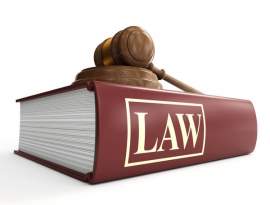
An Overview of Personal Injury

Popular In Personal Injury
Damages Compensation Personal Injury Settlement Calculator Proximate Cause Personal Injury Lawsuit Injury Examples Of Personal Injury Cases Personal Injury Settlement Personal Injury Lawyer How To File A Personal Injury Accident Claim Personal Injury Protection Pip Personal Injury Law Firm
Personal Injury Laws
Tort law can be categorized into three various categories: intentional, negligent, and strict liability torts. Tort law may generally be brought by any individual who has suffered a personal injury, it also does not require an actual written contract to be breached by either party. A plaintiff may be awarded damages for personal injury, such as pain and suffering. This is called punitive damages, but these damages are not always available in tort law. Tort law is considered more debatable than other areas of law, due to the fact there are many defenses available, as well as remedies.
Strict Liability is the extent of damage caused to a party, through the actions of another. Once a tort has been committed and liability comes into play, the next question regards the extent of the party's liability. Whether it was avoidable, or if the damaged party contributed to the tort, may play a major role when it comes to sorting out how liable each party is. Tort law relies heavily on individuals' intentions to act, and that, in its own, can relieve a party from the level of liability they were initially "responsible" for. When it comes to liability, the responsibility of one's duty to act as a reasonable person may be the deciding factor.
Negligence used to be a much broader term that referred to any sort of breach of the peace, but has evolved over time to become a separate entity from intentional torts as well as strict liability torts. There are certain elements that are required to prove that a defendant acted negligently. There is a specific code of conduct, which all people are expected to follow and there is a duty of the public to act in a certain way, which reduces the risk towards other parties within the proximity. Negligence law also emphasizes on how a reasonable person in the defendant's situation would have acted. A person's age, physical, and mental characteristics are taken into account.
In negligence cases, the standard of care refers to the amount of precaution and diligence taken by the individual whose duty it is to provide care to the plaintiff. Some negligence cases are left to the discretion of the judge or jury, while other cases are based on violation of statute(s). Failure to abide by the code of conduct established by the legislature may result in the defendant being liable for harm to the plaintiff caused by negligence.
The theory concerning proximate cause and vicarious liability refers to the chain of events which precedes the infliction of any form of injury. The legally relevant proximate cause is the one which should have occurred with the reasonable knowledge that it was reckless and might lead to another individual's suffering. In identifying this state, the law refers to the intervening cause.
Personal Injury Claims
Personal injury claims occur when a plaintiff is injured and seeks to collect damages from the person responsible for the injury. Many times injuries will result from natural disasters, such as floods, earthquakes, wildfires, tornadoes, etc. There are personal injury attorneys that will specialize in dealing with cases where a plaintiff's person or property was injured by an act of nature. The injured party can file a claim with his or her insurance company in order to obtain compensation for a damaged home, vehicle, or other property. Sometimes, what is thought of as a natural disaster can actually be attributed to the acts of a human.
For example, a person could start a wildfire by failing to extinguish a campfire. In this case, an injured plaintiff may be able to obtain damages from this person. The court will determine what type and how much damages can be obtained by the plaintiff. This will be based on certain personal injury legislature that will specify what types of injuries are actionable. The most common form of damages in personal injury cases is monetary compensation. Medical bills are the main factor in this determination.
If it is shown that the defendant is directly responsible for a plaintiff's injuries, he or she will be ordered to compensate for a variety of damages. Plaintiffs can receive: reimbursement for medical expenses and future medical expenses, wages lost during the time of the injury and any rehabilitation, future wages that may be lost due to permanent injury of the plaintiff, and possibly compensation for pain and suffering or emotional distress.
Personal injury cases are usually a result of either an intentional act, or of negligence. Negligence refers to a lack of proper care by a defendant that causes injury to a plaintiff. In the case of negligence, a defendant is held to the reasonable person standard. This means that the actions of that person will be compared to the actions of a reasonable person in a similar situation. The amount of negligence a person is responsible for can vary depending on that person's age, or physical and mental capacity.
Sometimes a defendant may attempt to avoid liability for an injury due to negligence by issuing a waiver of liability. This is a document that will be signed by another party, which attempts to relieve the defendant of responsibility for an injury that may occur on this person's property. Waivers of liability will usually not hold up in court if the defendant has acted negligently. However, if a party is engaging in abnormally dangerous activity, then he or she will be liable for any injury that occurs.
Sometimes defamation can be actionable as a personal injury. However, a plaintiff will only be able to receive damages if it can be proven whether the statement of slander is untrue. If this is able to be proven, then the plaintiff is entitled to collect the same type of damages as any other personal injury claim.
Examples of Personal Injury Cases
There are many different types of personal injury cases. Automobile accidents may occur due to dangerous driving conditions, driver inattention, speeding, or reckless driving. When a plaintiff is injured in an automobile accident, he or she may collect damages, such as: reimbursement for medical expenses, damage to a vehicle, lost wages, and/or pain and suffering.
When an accident occurs, a driver should obtain the names and information for all drivers and witnesses present, as well as note all personal injuries and damages to property. A medical malpractice law suit will occur when a medical professional has engaged in an act of negligence that results in the death or injury of a patient. In order to obtain damages in a medical malpractice suit, a plaintiff must prove: legal duty, violation or breach of that duty, proximate (immediate) cause, and actual damages.
This may include compensation for pain and suffering as well as emotional distress, because some medical malpractice incidents will result in permanent injury to the patient. This is similar to a defective medicine suit. In this case, a patient will be prescribed a drug that causes an injury or medical condition. These suits are often class action suits where many plaintiffs who consumed this drug can sue for damages.
Products liability cases are also commonly class action suits. Products can be defective due to a design flaw, a manufacturing flaw, or a failure to warn the consumer about possible danger. In this case, a plaintiff can take action against the manufacturer or supplier to obtain compensation for injuries.
When an injury occurs at a person's place of employment, this is called a workplace injury. It is usually due to unsafe, hazardous working conditions that cause harm to an employee. Usually this type of claim will be related to a slip and fall accident, or sometimes will be a result of exposure to harmful toxins. In order to collect for this type of injury, the court mandates that the injury must be directly caused by working conditions.
Mesothelioma cases are a type of workplace injury. Mesothelioma is a type of cancer that is caused by exposure to asbestos particles. Many people have been able to receive compensation for medical expenses by taking action against the place of employment where the exposure took place. Mesothelioma cases are often settled outside of trial court. This is a deadly type of cancer, which is why patients often die before a trial has been completed. In this case, it is possible for a victim's family to obtain compensation from the employer. Normal 0 21 false false false ES X-NONE X-NONE
NEXT: Can a Personal Injury Lawsuit Help You?




















